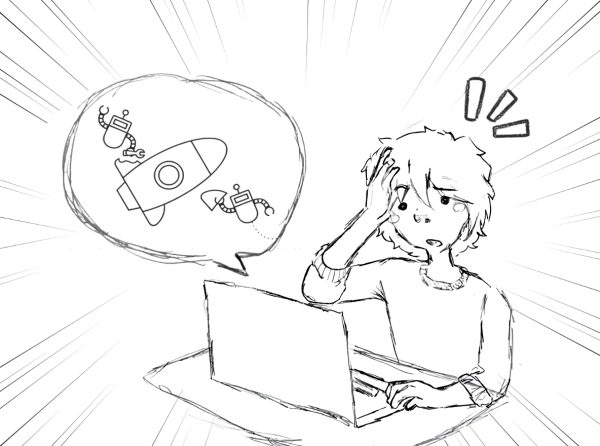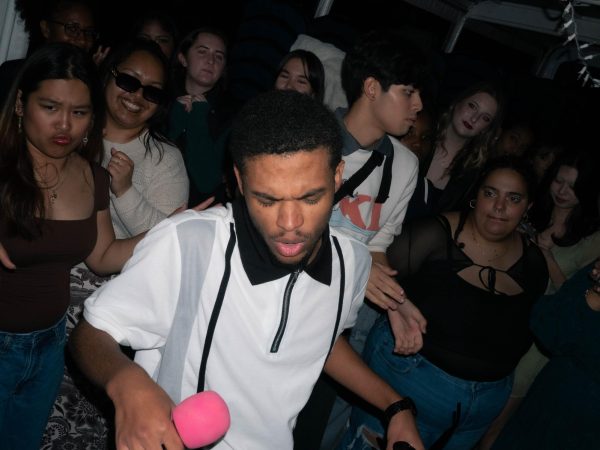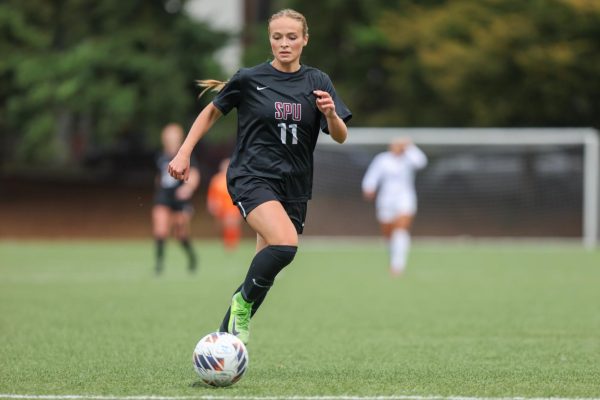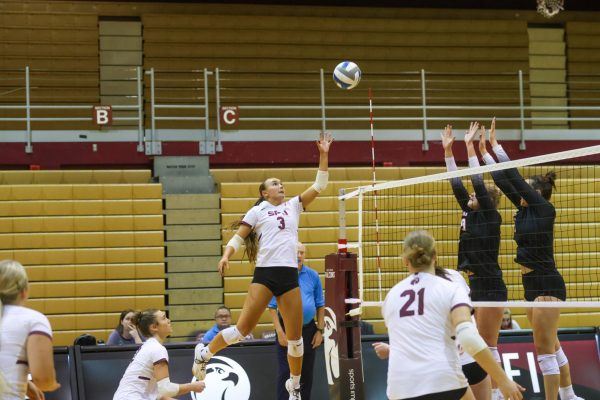Drawing lines in the sand
Young adults define their own standards of acceptable
October 22, 2020

A small rectangular dorm room stuffed with hall-provided bunk beds, dressers, and all the personal keepsakes to make it feel like home for the thirty-three weeks that each student lives there. This new home away from home pushes students to find their own place in the world and become their own person.
Scrambling to find one’s self and one’s place is an experience that everyone has to face eventually. But since college students are given the unique opportunity to “live on their own” three-fifths of the year while still being pulled by their family’s wishes and desires, students are forced onto the uneasy task of drawing lines for themselves.
As difficult, uncomfortable, and uncertain the process of finding and setting one’s limits is, it is absolutely imperative for the success and growth of students and young adults everywhere.
After living in an environment where expectations were clearly defined, boundaries and rules were set, and the consequences of breaking those rules and expectations were reliable, jumping into the independent world of college can be jarring.
Instead of a steady hand guiding and a clear voice of direction present in every decision made, students are required to design their own schedules, make sure they reach their academic goals and use their time wisely for classwork and learning. Without a supervisor and with all the freedom in the world, it’s very easy to lose sight of limits.
That is why it is so easy to find so many stressed, overwhelmed, and confused students wandering college campuses and sitting through countless Zoom classes. When the only consequences for not studying is a long-term loss to a percentage, it becomes much more difficult to make sure readings and assignments are finished on time.
With a weekly commitment that comes with clubs, class study groups to attend, the various major related get-togethers, and the limited ways that students can connect to other students in the times of a pandemic, students very quickly find themselves hopping from one commitment to the next, after logging off their final class call of the day.
So, before students overload their schedules with meetings, work schedules, club commitments, social gatherings, let us take a moment to breathe.
Every student has different social needs and limits, and every person needs to honor their own needs and limits. If someone finds themselves physically, mentally, emotionally, and socially drained, day by day, week by week, then something is wrong.
Humans are not designed to do everything at once all of the time. There is physically no way for the human brain to process everything that the eyes see, so it is unrealistic for humans to expect their schedules to include every single opportunity and still be functional.
In biblical terms, these temporal boundaries on commitment and busyness for the sake of peace and rest is called a Sabbath. This intentional break from the pressures of daily life is thought of as a holy, sacred gift from God, as He calls us to create holy, fulfilled lives in Him.
It does not take a faith-centered belief in a Sabbath or a similar understanding of rest for someone to apply this idea to their life. If a student decides to allow for a full day’s rest once a week, it forces them to get their work done sooner, so as to not interfere with the peace of their rest day. It also forces the student to let go, tune out, and relieve some of their anxiety and stress in healthy ways, making for a better week ahead.
Faced with midterms and schedules that have made their way into routines for students, now is the perfect time to consider what is working and what is not. Consider how drained and despondent endless Zoom calls and meetings can be, even if they are for the right reasons.
Take time to find the places where boundaries on school, work, social interactions, personal commitments will better serve the life that you are trying to build. Just think of all the energy you could put into the things you truly care about when you let go of the things you are making yourself do for the sake of being a “responsible” adult.


























































































